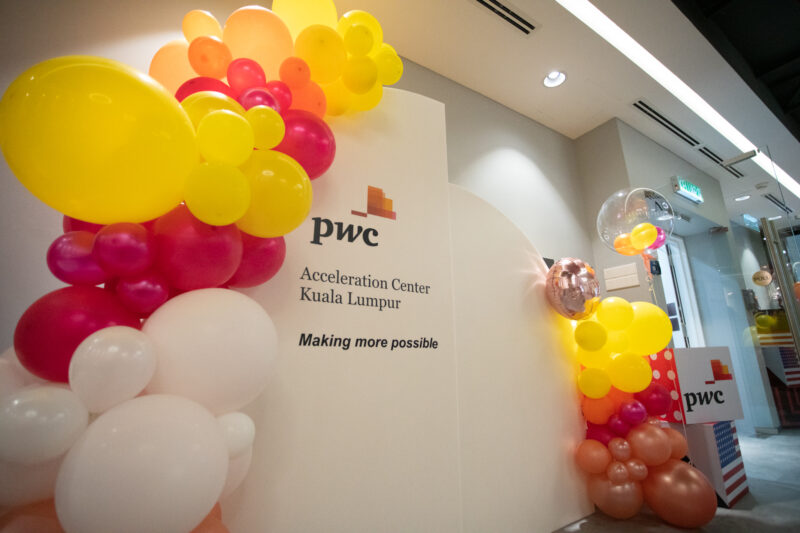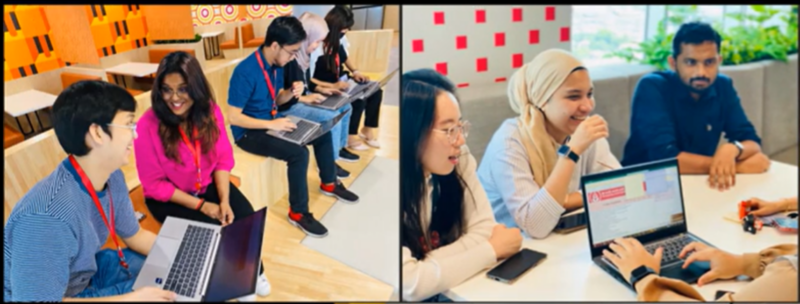
This site
is mobile
responsive

In an increasingly interconnected world, MNCs are facing the challenge of delivering core capabilities while balancing costs in an uncertain global economy. This task is further amplified, thanks to borderless talent pools.
The COVID-19 pandemic has prompted companies to develop agile workforce strategies to adapt to the new normal. As a result, remote and global talent hub models have gained traction as solutions to the challenges brought about by the pandemic.
To maintain cost competitiveness and deliver on their brand promises, MNCs are actively seeking ideal locations to establish global in-house capability centers. These centers provide a perfect opportunity for talent to remain in their home countries while gaining global exposure. By working collaboratively across functions and geographies, these inclusive teams support clients through enhanced quality and innovation.
In today’s nimble yet deeply interdependent world, this continued shift in MNCs incorporating external talent into their internal operations has emulated global in-house service-delivery models. Therefore, aligned with driving global integration, offshore destinations are becoming home to a concentration of a company’s top skilled talent, which has been pulled together as part of one seamless global competency team.
AT Kearney’s 2021 Global Services Location Index (GSLI) identified three major evolutions in service-delivery business models over the past years. The first phase saw MNCs engage in geographical arbitrage to identify low-cost destinations. The second major phase was when the model shifted towards outsourcing. The third was centred on the automation of high-volume, repetitive operations. Within the past few years, a fourth wave has emerged. Even as automation has transformed service operations, human capability has remained a central factor. The presence of concentrated, digital, and tech-savvy talent has become a potent differentiator between cities vying for consideration as business-service locations.
Orthodox business service operating models often comprise multiple centres across jurisdictions that are built to house specific departmental functions. Typical offshore centres often centralise back-office operations, call centres and customer support.
This next wave, however, treats these centres as a single in-house integrated network so that work can easily be done across functional and business-unit boundaries as and when it is needed. This new evolution segments work by complexity, talent capabilities, and service-level requirements rather than only by department. It enables MNCs to expand the range of business outcomes that can be efficiently and effectively delivered. Besides delivering solutions for their clients, given the convenience of these offshore cities, which provide the ideal location in different time zones, it allows the new generation of talent to work anywhere
While past strategies concentrated on recruiting an army of basic functional talents, MNCs are now increasingly on the lookout to set up global in-house centres to house their digitally savvy experts in front-end fields of professional services such as accounting services, audit and consultancy, engineering, and legal services. Using the latest digital technologies to collaborate with global teams, these centres deliver an extension of their services in an agile and efficient manner, while creating a differentiated experience for clients.

In 2022, PricewaterhouseCoopers (PwC) set up its first Acceleration Center (AC) in Kuala Lumpur. PwC ACs are global talent hubs that bring together diverse, highly skilled talent to work on complex client engagements. Using the latest digital technologies to seamlessly collaborate with global teams, the centre delivers services in an agile and efficient fashion, while creating a differentiated experience for clients. Over the next five years, the centre is set to expand its competencies across the entire breadth of the company’s portfolio, creating attractive job opportunities for digital and tech-savvy talent in Malaysia.
As part of PwC’s global strategy, The New Equation, its people come together as a passionate community of solvers — to build trust and deliver sustained outcomes for clients, stakeholders, and communities. As the global talent in ACs connects with each other across geographies and cultures to solve important problems for PwC’s clients and stakeholders, they collaborate with a mindset that transcends boundaries and embraces diverse perspectives.
“We believe that Acceleration Centers build and grow their value when we make systematic investments in people and enable them to thrive in an environment of equity, opportunities, and inclusive growth. This means that in our ACs around the world, our people will have the chance to engage in challenging projects, develop deep technical acumen, and work alongside our US and Mexico colleagues to help our clients and stakeholders solve their most important challenges. We do that by providing differentiated services underscored by quality, innovation, and a diversity of perspectives,” says Hari Kumar, PwC Acceleration Centers Leader.
Besides creating job opportunities, these centres cultivate innovation and learning, particularly by attracting the best talent worldwide. Talent is the most important pillar that supports the transition of nations towards knowledge-based economies. The availability of talent also spurs innovation and entrepreneurship in many countries. This is very much aligned with the aspiration of the Malaysian Government under the Twelfth Malaysia Plan (12MP) to support the nation’s transition into knowledge-based economy by enticing more companies to provide higher value-add services. This acceleration of creating more high-value jobs and grooming a talent pool in Malaysia is in tandem with Malaysia’s transition into a Global Services Hub by 2025.

Today, Malaysia has visibly garnered greater traction from service providers that are searching for higher levels of value and performance for the delivery of their business services by mobilising their in-house talents with the relevant capabilities.
Furthermore, Malaysia’s value proposition in the heart of Southeast Asia puts the country on the radar to play the role of host for MNCs to house their operations in this part of the region.
MIDA is well-poised to assist businesses looking to enter and/or expand in Southeast Asia, and that are looking to establish global capability hubs in Malaysia. More information on how MIDA can further assist can be obtained by reaching out to the Business Services and Regional Operations Division at https://www.mida.gov.my/staffdirectory/business-services-and-regional-operations-division/.
